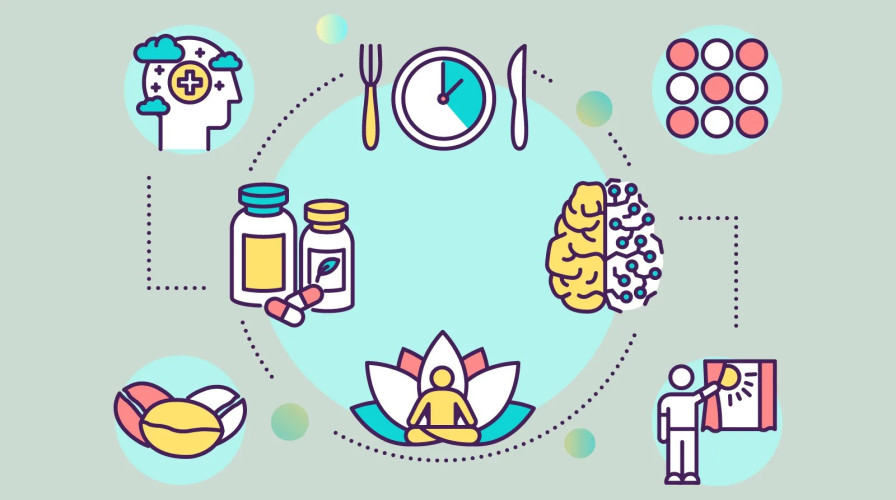The Impact of Biohacking on Personal Wellness and Productivity

Introduction
Biohacking, a term that encompasses a broad range of practices aimed at enhancing human performance and well-being through biological and technological means, is transforming the way individuals approach personal health and productivity. As advancements in technology and science continue to evolve, biohacking has gained significant traction, drawing attention from both enthusiasts and researchers. This article delves into the various aspects of biohacking, examining its impact on personal wellness and productivity, and exploring its future implications.
What is Biohacking?
Biohacking refers to the use of experimental techniques and technologies to optimize physical and mental performance. It encompasses a wide array of practices, including:
- Nootropics: Supplements and drugs intended to enhance cognitive functions such as memory, focus, and creativity.
- Wearable Technology: Devices like fitness trackers and smartwatches that monitor physiological parameters and provide insights into health metrics.
- Genetic Modification: Techniques like CRISPR to alter DNA for improved health outcomes or disease prevention.
- DIY Biology: Personal experiments in genetics, microbiomes, and more, conducted outside traditional lab settings.
Innovative Techniques in Biohacking
- Nootropics and Cognitive Enhancers
- Smart Drugs: Substances like modafinil and racetams are used to improve cognitive functions, with some studies suggesting increased focus and memory retention.
- Natural Nootropics: Supplements such as caffeine, ginkgo biloba, and Rhodiola rosea are popular for their potential cognitive benefits.
- Wearable Technology
- Fitness Trackers: Devices like Fitbit and Apple Watch monitor physical activity, sleep patterns, and heart rate, providing users with data to optimize their health and fitness routines.
- Sleep Trackers: Devices and apps that analyze sleep patterns to help improve sleep quality and overall wellness.
- Genetic Modification and CRISPR
- Gene Editing: Technologies like CRISPR-Cas9 are used to make precise changes to DNA, potentially reducing the risk of genetic disorders and enhancing physical traits.
- DIY Biology
- Microbiome Experiments: Individuals experiment with diet and probiotics to influence gut bacteria for better health and immune function.
- Implantable Devices: Subdermal implants that monitor or modify physiological functions are becoming more common among biohackers.
Scientific Basis and Effectiveness
Biohacking practices vary widely in their scientific backing. Some, like nootropics, have a growing body of research supporting their efficacy, though results can be mixed and vary between individuals. Wearable technology generally provides reliable data on physical activity and health metrics, though the interpretation of this data can be complex.
Genetic modification and CRISPR hold promise for treating and preventing genetic diseases, but ethical considerations and long-term effects are still under investigation. DIY biology and experimental practices are less regulated, raising questions about safety and effectiveness.
Personal Stories: Successes and Challenges
- Success Stories: Many individuals report significant improvements in cognitive function, physical fitness, and overall well-being through biohacking. For instance, a tech entrepreneur might use nootropics to enhance productivity, or a fitness enthusiast may use wearable technology to fine-tune their exercise regimen.
- Challenges and Risks: Biohacking is not without risks. The lack of regulation in some areas means that individuals might encounter harmful side effects or ineffective treatments. Additionally, the ethical implications of genetic modification and DIY biology are subjects of ongoing debate.
Ethical and Social Implications
- Privacy and Data Security
- Health Data: The collection of personal health data by wearable devices raises concerns about data privacy and security. Ensuring that data is protected and used ethically is crucial.
- Equity and Access
- Accessibility: Advanced biohacking tools and technologies can be expensive, raising questions about equity and access. Ensuring that benefits are available to a broader population is an ongoing challenge.
- Ethical Concerns
- Genetic Modification: The potential to alter human genetics brings up ethical issues regarding the extent to which we should modify our biology. These concerns include the potential for unintended consequences and the implications for future generations.
The Future of Biohacking
As technology and science continue to advance, the field of biohacking is likely to evolve. Future developments may include more sophisticated genetic editing techniques, advanced cognitive enhancers, and greater integration of artificial intelligence in personal health management. However, these advancements will need to be accompanied by robust ethical frameworks and regulatory oversight to ensure they are used safely and equitably.
Conclusion
Biohacking represents a fascinating convergence of technology and biology, offering new possibilities for enhancing personal wellness and productivity. While the potential benefits are significant, it is essential to approach these practices with a critical eye, balancing innovation with caution. As research progresses and the field matures, biohacking will likely continue to shape the future of personal health and performance in profound ways.










